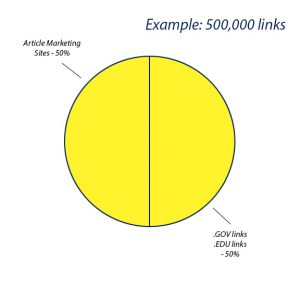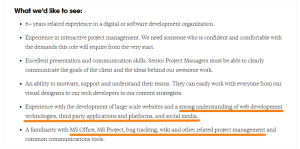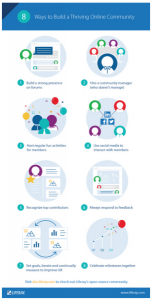— August 26, 2019
You only have one chance at a first impression, and when applying for jobs, often your resume is that one shot. Your first chance to show a company who you are and why you’re perfect for the job, getting your resume wrong could mean never even being glanced at for your dream job.
Remember, there are dozens of other applicants vying for the same role, so you need to make your resume as memorable and honest as possible, and avoid these resume mistakes.
1. Spelling and grammatical errors
Want to ensure your resume is immediately discarded? Forget to proofread. Grammatical errors and spelling mistakes are resume killers. Not only does it imply that you don’t have a full grasp of the English language, but it also shows that your attention to detail is lacking.
Remember, spell check isn’t foolproof. It will only pick up words that are spelled incorrectly, and sometimes it won’t even do that. For example, spell check may not flag the sentence “the following is a grief overview of my skills,” even though it’s meant to say “brief” instead of “grief.” Always read through your resume at least a couple of times, and once aloud if you can. It’s also a good idea to get someone else to read it over, as a fresh pair of eyes is sure to pick up things that you may not.
2. Including outdated, irrelevant or false information
Unless something is directly related to the job, it doesn’t belong on your resume. Every time you go to send your resume, ensure your work history is current, your skills have been updated and your contact information is correct. It’s generally no longer required to include your hobbies or your age, so there’s absolutely no need to include these unless it’s directly relevant to the job.
Additionally, never ever lie on your resume. Experts say that more than 50% of people lie on their resumes. Why? To pad it out so it looks like you’re more experienced than you are. Lying on your resume can take many forms, including citing a degree you haven’t done, altering your employment dates, inflating your salary, claiming job titles or responsibilities that you never had, or misrepresenting why you left a job. We can guarantee, this will be caught out.
3. Not customizing your resume or cover letter
In the same vein, customizing your resume is crucial and even if you’re a university student looking for flexible work. It may be tempting to use a generic resume, sending it off for every single job application you can think of, but you may be biting yourself in the behind here, especially in today’s automated world. Generally speaking, most resumes go through an electronic review prior to even being placed in an employer’s hands. If your resume doesn’t have specific keywords or relevant information, it’s simply going to be discarded.
According to David Alexander, Director of Student Services at The International Career Institute, customizing your resume is worth it. “Customize each resume CV you send,” he explains. “Emphasise and craft each one towards the role you are applying for. Leave out irrelevant details and limit it to one to two pages long. Above all, keep it simple and focus on achievements and not day to day tasks.”
4. Telling rather than showing
As the saying goes: show, don’t tell. You need to include evidence of your achievements rather than just explaining what you’ve done. Use real examples of how you showed leadership, teamwork or creativity in your previous roles. A good idea is to use the STAR method and provide the situation, task, action, and result.
Another mistake that falls under the same banner is simply listing your duties at previous roles rather than specifying what you accomplished. For example, rather than simply stating that you worked with children at a day-care, explain how you were involved in developing the daily program, how you prepared the sessions and how you worked with the children to further their development.
5. Obvious keyword stuffing
Keywords are important, especially as we know electronic scanning usually happens prior to employers being handed a shortlist of resumes. However, it’s very obvious when keywords have simply been shoved into a sentence. It’s also glaringly obvious when too many keywords have been used in a desperate attempt to pass the electronic test.
Make sure any use of the keywords is done naturally in a sentence. Use them wisely and incorporate them into your resume so that they make sense. It’s a good idea to get someone else to read your resume to ensure the use of the keywords flows nicely.
6. Being too vague
It’s not enough to state that you worked in a restaurant for five years before applying to the front-of-house managerial role you’re currently reaching for. You need to be specific in your work history. If you were involved in the recruitment and training process, express it. Include the turnover of the business so employers can see what kind of work environment you’ve been a part of. Specifics grab attention. On the flip side, don’t include too much information either. Employers don’t need to know every single detail, they simply want the highlights.
A final word of advice: don’t sell yourself short. Share your achievements, including awards and promotions. While you don’t want to seem boastful, accomplishments must be shared so employers can see that you were recognized in your previous job. Remember, this means you were succeeding and immediately places in you a positive light. Find the balance between being too modest and too arrogant–it can be tough, but if you do it correctly, your resume will shine.
Business & Finance Articles on Business 2 Community
(34)
Report Post






